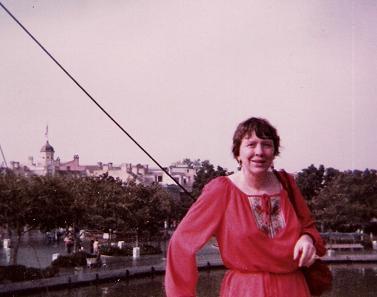Defining Happiness
What is happiness? This question came to my mind this morning when I read an e-mail from the yahoo group Journal Writing. The title of the post was “Getting over happiness” in which Psychologist Steven Hayes was paraphrased. The gist of the paraphrase was that we (American’s) are so preoccupied with “feeling good” that we are stopping ourselves from “living good” because to live life to its thoroughly means experiencing pain. We cannot live on the material plane without some type of pain and disappointment, but we do not want to feel pain or any other negative feeling. However, (I suspect) not experiencing those feeling actually prevents true happiness.
The basic problem is how we define happiness. If we define happiness from a purely material angle then lack of pain may be important to material happiness, but (if like the mystic poets) we define life from a spiritual angle then pain and sadness contributes to the spiritual aspects of life. An example from the life of ‘Abdu’l-Baha may make the point better than anything else. ‘Abdu’l-Baha experienced exile and imprisonment because of his faith the majority of his life. Yet this did not prevent him from helping others nor did it prevent him from being happy. The reason for this is that ‘Abdu’l-Baha defined happiness from a spiritual aspect rather than a material point of view.
Mystic poets define happiness in the presence of the Beloved, which means being in the presence of God (Divine Essence). Through prayer, meditation, reading the sacred writing and sacrifice, the mystic poets achieve spiritual happiness or the presence of the Divine Essence. In like manner ’Abdu’l-Baha achieved happiness because he prayed, meditated, read the sacred writings and sacrificed the desires of ego to the desires of the soul or the spirit.
The basic problem is how we define happiness. If we define happiness from a purely material angle then lack of pain may be important to material happiness, but (if like the mystic poets) we define life from a spiritual angle then pain and sadness contributes to the spiritual aspects of life. An example from the life of ‘Abdu’l-Baha may make the point better than anything else. ‘Abdu’l-Baha experienced exile and imprisonment because of his faith the majority of his life. Yet this did not prevent him from helping others nor did it prevent him from being happy. The reason for this is that ‘Abdu’l-Baha defined happiness from a spiritual aspect rather than a material point of view.
Mystic poets define happiness in the presence of the Beloved, which means being in the presence of God (Divine Essence). Through prayer, meditation, reading the sacred writing and sacrifice, the mystic poets achieve spiritual happiness or the presence of the Divine Essence. In like manner ’Abdu’l-Baha achieved happiness because he prayed, meditated, read the sacred writings and sacrificed the desires of ego to the desires of the soul or the spirit.
(19 Mulk 162 B.E.)



0 Comments:
Post a Comment
Subscribe to Post Comments [Atom]
<< Home